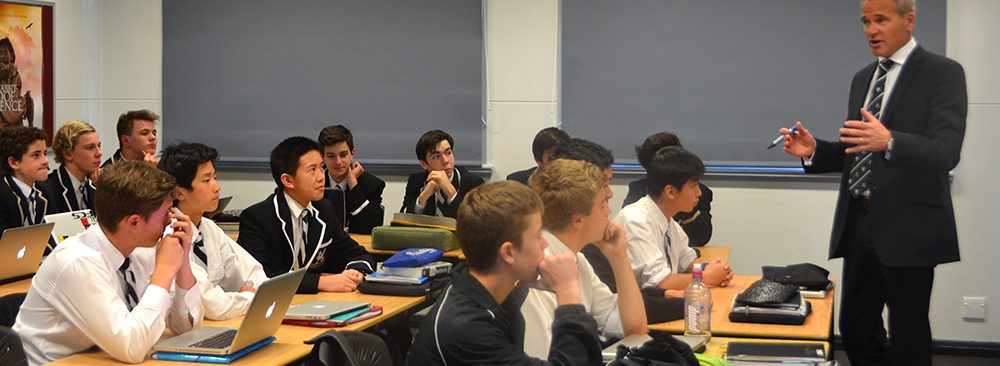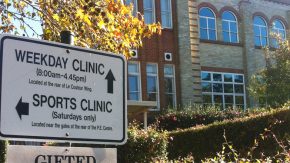Launch of Positive Psychology Program at Newington
Newington College has commenced it’s Positive Psychology program with Year 9 boys, undertaking a unit on Mental Fitness this term. It is hoped that by following some of the best practices and research in Teenage Positive Psychology, we can equip our boys to be more grateful, more optimistic and more mentally tough in both their curricular and co-curricular lives.
The Mental Fitness unit involves a mentor program whereby the boys are encouraged to improve self-awareness, especially in relation to “the unknown” or “hidden” self which is often responsible for negative thoughts and cynicism. It looks to reduce automatic negative thoughts, which often leads to a “can’t do” mindset, and focus more on performance-enhancing thinking or “can do” thoughts.
Some background work from Positive Psychologists such as Martin Seligman has been beneficial when putting this program in place. Mr Seligman defines Positive Psychology as being more than just being happy all the time, but more about how we can pursue happiness by making our relationship with the world around us more meaningful. For this reason, the boys will be studying the significance of engagement, relationships, meaning, purpose, and accomplishment in their school life. Often Year 9 is known as the ‘lost’ year in secondary education, hence we hope it will be particularly beneficial to these boys.
Paula Robinson from the Positive Psychology Institute is leading staff through practical ways of applying these principles of positive psychology – positive emotion, engagement, relationships, meaning and purpose, and accomplishment – to the boys’ school and family life. She is also introducing both boys and the staff to the concept of Mental Fitness. Using the metaphor of the physical body to explain the idea of mental strength stamina and flexibility is particularly successful as it is something they can all relate to. We hope that boys can take away some of Ms Robinson’s strategies which will assist us all in being more resilient in our thoughts and when coping with disappointment as well as enjoying successes.
This term’s unit has been appealing to our boys however sometimes applying these concepts can be challenging as they are required to be honest. Often, teenage boys are more inclined to set their standards low to avoid disappointment so it would be interesting to see if Positive Psychology will enable them to separate their individual worth from their achievements and accomplishments. The concept of ‘team’ is also covered in this unit. Team reassures the boys of who is behind them or with them at difficult times. This is an important element in building a happy approach towards life. Other key topics include well being, hope, love, zest, gratitude and curiosity.
Resilience or our our ability to bounce back after a difficult situation has been a school-wide topic with Dr Andrew Hirst presenting the concept to the boys during assembly at the beginning of term. As Dr Hirst explained, a boys’ ability to grow from failure, manage stress, manage their emotions and ‘bounce back’ from disappointment is significant, and sometimes equally as important as trying to maintain happiness.
The ability to be optimistic is essential for better health, a happier life, reduced stress and better relationships. Surely it is worth pointing this out to our young men as they move into adulthood. However, it must be done in a realistic and flexible way if it is to have real meaning for them.
The initial introduction of the program looked briefly at gratitude and optimism with a hilarious YouTube clip of American comedian Louis C.K. on a talk show saying “everything’s amazing and nobody’s happy”(Click here to view). It puts into context our rights and our expectations in the modern world and how unrealistic some of them are at times.
The practical activities covered in this unit and how they are relevant to the demands of school life we hope will assist our boys in the years to come. Some first impression comments on the program are listed below and I will continue to give feedback on the progress of the program from both staff and student perspectives.
The single, long term aim is that our boys can better rise to life’s challenges, make the most of setbacks and adversities, and optimistically look forward to the future.
“We have been looking at how to be more positive, more optimistic. We are learning how we can be more resilient and bounce back from disappointments”. – Rhys Watkins, (9/MA)
“We have been looking at our goals for the year and how to use our strengths to help us”. – Nick Davies (9/MO)
Mr. Robert Meakin
Deputy Head of Stanmore (Students)






